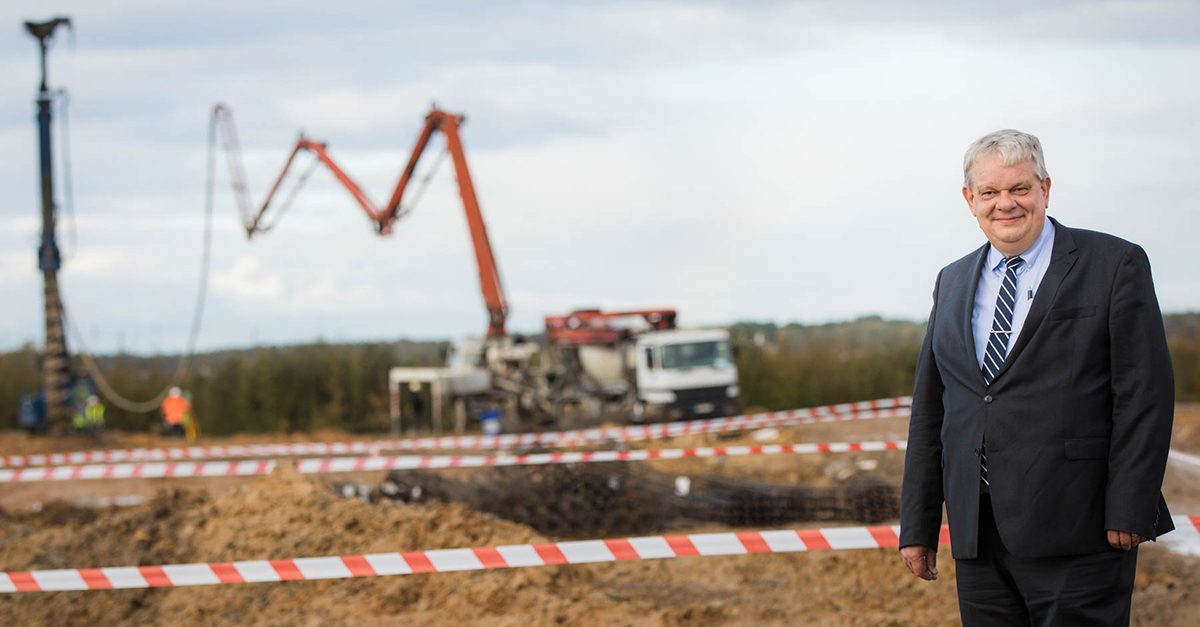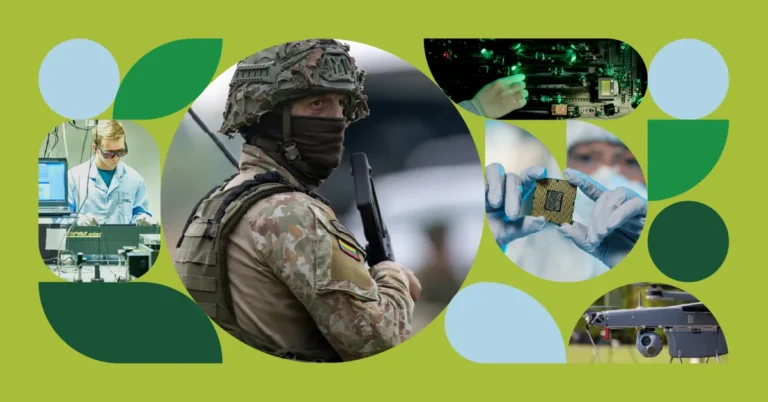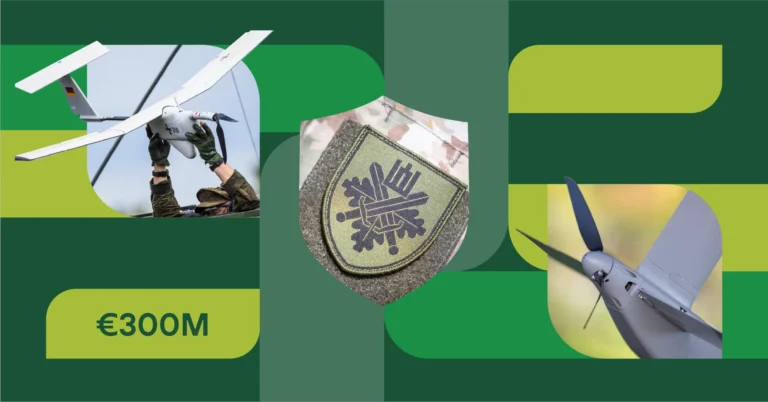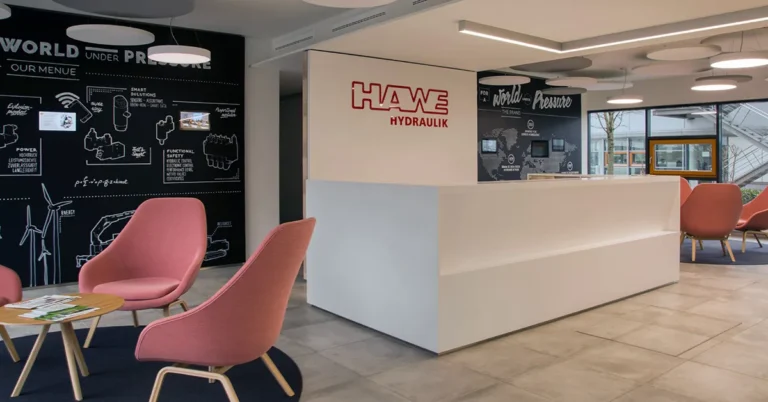There were a number of countries to choose from for your factory. Why did you choose Lithuania?
In early 2016 we started looking for a place for our new plant. We had collected information about 21 different locations in Europe. We narrowed our search down to 13 countries, each of which was visited by our team, which collected and assessed the details that mattered most.
At the end, Lithuania matched all our priorities. The fact that Lithuania was not on the logistics maps of our clients was no obstacle. This simply means that our clients will not be able to collect our products themselves: we will have to deliver them to distribution centres in Germany. We will certainly have some additional logistics costs which will not be compensated by anybody.
Nevertheless, I strongly believe that it will not take long before this situation changes. I have no doubt that other car component manufacturers will follow our example and Lithuania will be included in their logistics maps.
I happened to talk to other manufacturers about countries favourable to the industry during various conferences in Germany. I have never heard anyone speaking about Lithuania. I thought I had to be the first to make this step. I liked the people here straight away, from my very first visit to Lithuania: they are kind, open and down to earth. I liked that the country is clean and neat. Then there were two determining factors which led us to choose Lithuania.
The first one was our strategy of profit-making growth, which requires the continuous improvement of manufacturing processes and increasing the degree of automation. This is particularly important in countries with an expensive labour force, such as Germany or the USA. Our factories in these countries use complete or almost fully automated manufacturing lines.
The increasing degree of automation is also relevant in countries with a cheap labour force, such as Lithuania, Mexico or China.
To install semi- or fully automated manufacturing lines we look for skilled and motivated engineers. We also search for motivated and experienced workers to work three shifts up to seven days a week in order to supervise these lines.
So the most important thing for us is to reach people, because it is people that create companies. One of the most difficult tasks for us in most countries – not only in Asia – is to find good workers, regardless of the fact that we are recognised as a priority employer all over the world. We are sure that in Kaunas, with the assistance of Kaunas University of Technology, we will be able to find the people we need.
The second reason was that, being a family operated company, we were looking for a developed and politically stable country. In our view, Lithuania, which is a member of the EU, NATO and the Eurozone, complies with these criteria perfectly. And finally, we found a business friendly environment in Lithuania.
The road infrastructure, water and air transport possibilities in Lithuania are certainly also important, because a considerable part of the components required for our production comes from Asia. Additionally, we hope to find local suppliers of components.
Lithuania has been recording an increase in wages for some time now. Does this have any effect on your plans?
The increasing value of the labour force also means that the level of qualifications also has to improve. For instance, in our factory in Germany, we often launch new products because it is competitive, although wages are high.
From the perspective of Germany, Lithuania is still an attractive, low-cost country, and I think that it will remain so for quite some time. For example, looking at certain regions of Romania, in particular the western ones, we have been observing signs of overheating in the economy. And we need a really high number of different types of employees.
There is no doubt that the labour force here will also grow more expensive, but I do not expect a considerable increase. We have to compensate every increase in cost since our clients are not aware of growing costs. They only know about falling prices…
You have prepared very quickly for the construction of this plant. How did you manage to do this?
This story sounds incredible, and is a simple illustration of the business friendly environment in Lithuania. The final decision to build a factory in Lithuania was adopted in January 2017. And here we are: already building it in October of the same year!
People say that deals are arranged and affairs are conducted very quickly in China, but I can say that in Lithuania these things are done much faster. At the moment we are also preparing a package of documents required for a new plant in China and this process has been running for three years.
During this procedure we have received considerable assistance from the wonderful specialists at Invest Lithuania, who supported us greatly.
How do you assess the competitiveness of the factory in Lithuania? What investments are planned?
Providing we have assessed all the facts correctly, I see no obstacles for Hella Lithuania becoming as competitive as any other Hella plant in the world.
Presently, the first module of the new factory has been constructed in Kaunas FEZ, which will have annual production worth €250 million. If this module proves to be successful (and I have no doubt that it will), we will supplement the factory with 4 more modules.
The investment in the building amounts to €10 million, one line costs about €2.5 million. Further expansion will require an additional investment of €5-7 million.
We are now planning annual investments of €15-20 million and this process (subject to circumstances and results) might take from 3 to 6 years.
About Hella
Hella has been in business since 1899 and is on the list of the 40 biggest suppliers of car components in the world and in the top 100 biggest industrial companies in Germany. Hella’s product list is comprised of 29 product groups, including accelerator pedal position sensors, lights and illumination components, vacuum pumps, and more. Equipment required for self-driving cars and electric cars is already being developed.
The company has a total of 13 plants, located in Brazil, China, Germany, India, Mexico, Romania and the USA. The Hella Group has 38,000 employees. In the 2016-2017 fiscal year, its companies yielded €6.6 billion.













